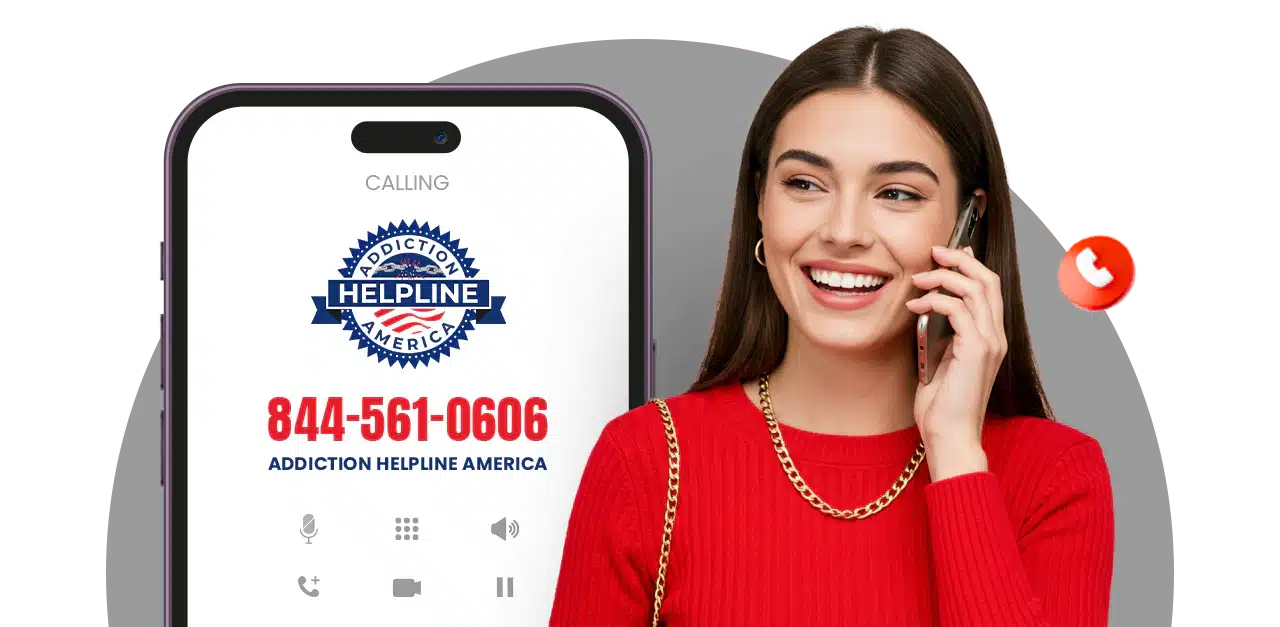
At its core, an emergency substance abuse hotline is a lifeline. It’s a completely free and confidential phone service that connects you instantly with someone trained to help during a substance use crisis. You get real-time support, guidance, and resources from a compassionate professional, 24/7.
Think of it as the first port in a storm. When addiction feels overwhelming and you don’t know where to turn—whether for yourself or for someone you love—a hotline is that safe, immediate first step.
The entire point of these hotlines is to offer urgent help when you feel scared, lost, or at your absolute breaking point. Making that call isn’t a sign of weakness; it’s an incredible act of courage. The person on the other end is there to listen without judgment and guide you through the chaos.
When to Call for Help
An “emergency” isn’t just about a life-or-death scenario. It’s any moment you feel you can’t handle things on your own anymore. Knowing when to reach out is critical.
Here’s a quick guide to some of the most urgent situations where a hotline can be the right call.
| Crisis Situation | Who Should Call | What the Hotline Can Do |
|---|---|---|
| Potential Overdose | The person using, a friend, or a family member. | Provide immediate life-saving instructions (like administering naloxone if available) and help you contact emergency services. |
| Severe Withdrawal | Anyone experiencing unmanageable symptoms or a loved one witnessing them. | Assess the severity, offer ways to stay safe, and connect you with medical detox facilities to manage symptoms safely. |
| Suicidal Thoughts | The person struggling or anyone who has heard them express thoughts of self-harm. | Offer immediate crisis counseling and connect you with specialized suicide prevention resources like the 988 Suicide & Crisis Lifeline. |
| Hitting “Rock Bottom” | Anyone feeling hopeless, overwhelmed, or ready to seek help but unsure of the first step. | Listen without judgment, validate your feelings, and walk you through available treatment options and resources. |
If you recognize yourself or a loved one in any of these scenarios, please don’t wait. A call can make all the difference.
This image breaks down the essential functions of a hotline.
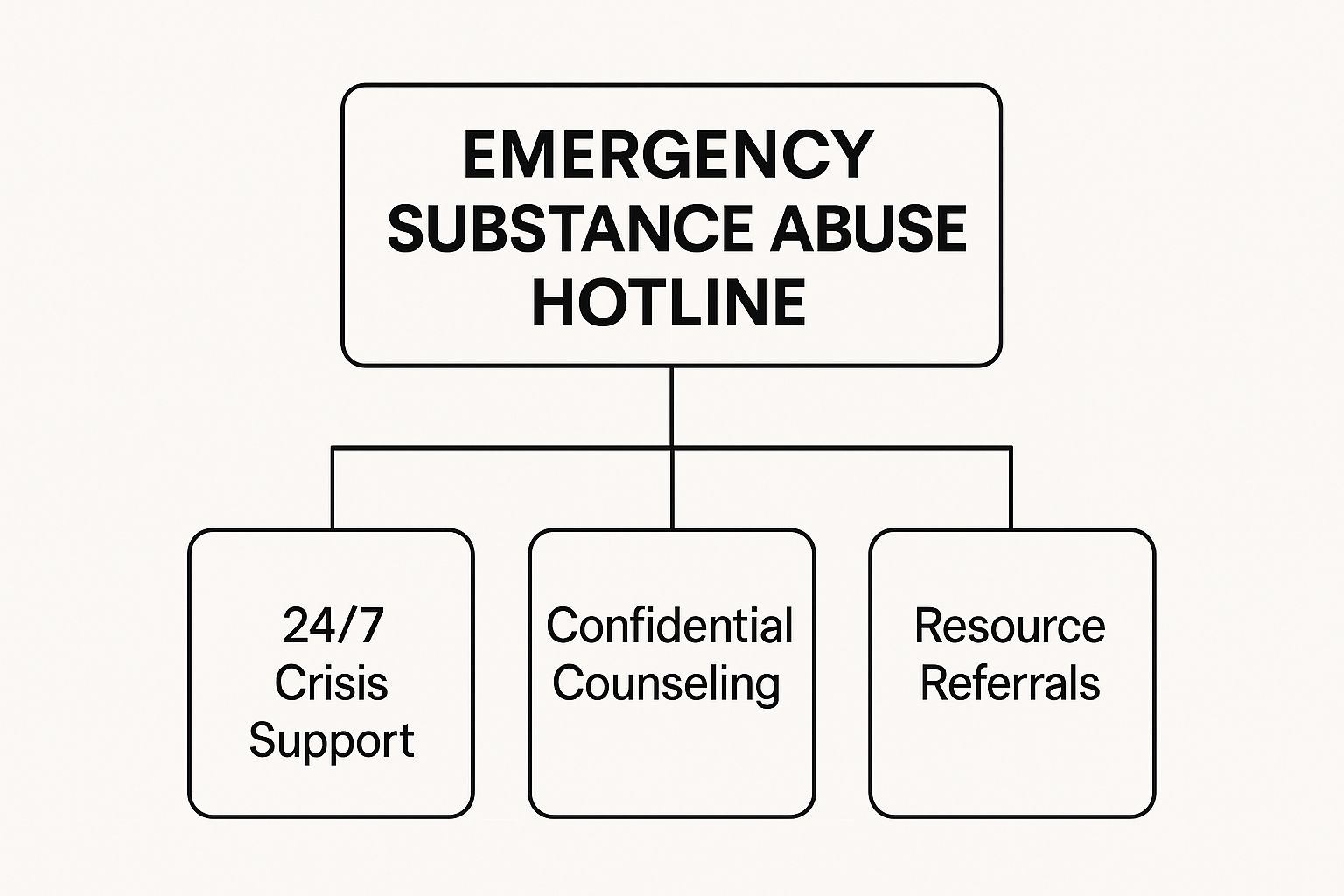
As you can see, these hotlines are more than just a listening ear. They are a central point for crisis intervention, confidential guidance, and a direct link to long-term treatment and recovery resources.
This approach is backed by leading health organizations. The World Health Organization (WHO) stresses that easily accessible support is essential for tackling substance use disorders worldwide. Hotlines are that crucial first touchpoint, connecting people in crisis with the professional care they desperately need.
Ultimately, these services provide a structured, supportive first contact. If you want to learn more about the different kinds of services available, you can explore our guide on other hotlines for addiction help.
What to Expect When You Make the Call
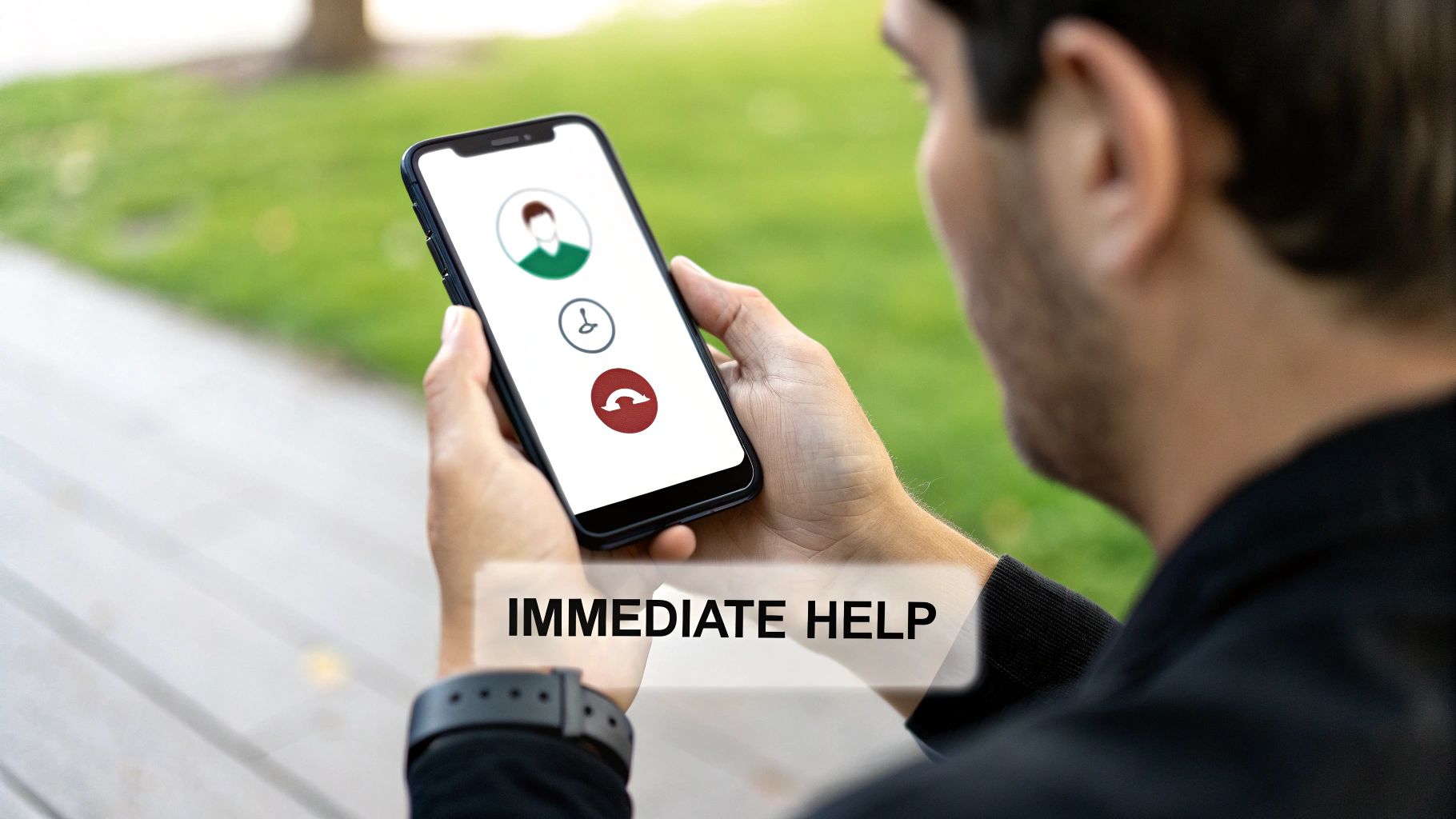
It’s completely normal to feel nervous about calling a substance abuse hotline. Picking up the phone is a huge step. But knowing what happens on the other end of the line can make it feel a lot less daunting.
The person who answers isn’t there to judge or lecture you. They are trained professionals whose only job is to listen and help. The entire conversation is 100% confidential, giving you a safe space to talk openly.
Preparing for the Conversation
You don’t need to have everything figured out before you call, but a little prep can make the conversation feel smoother and more productive.
Here are a few simple things you can do:
- Find a Private Space: If you can, step into another room or go for a walk. Finding a quiet spot where you won’t be interrupted or overheard makes it much easier to speak freely.
- Be Ready to Share: You don’t need a script. Just be prepared to talk about what’s going on, whether the crisis is happening to you or someone you care about.
- Have Information Ready (If Applicable): If you’re calling for a loved one, knowing basics like the substances they’ve used can be helpful. But don’t worry if you don’t have all the details—just call.
The scale of the opioid crisis really puts the need for these hotlines into perspective. In just one year, U.S. poison control centers handled almost 284,000 cases linked to opioid exposure. It’s a staggering number that shows just how many people are facing these emergencies.
“The most important step is simply making the call. You don’t need to have all the answers; the specialist is there to help you find them.”
The specialist will guide the conversation, first making sure everyone is safe. From there, they’ll give you clear, actionable next steps. That could mean helping you find a local detox center or explaining what to expect in rehab if you’re ready to explore that option. The goal is to make sure you hang up with a plan and a renewed sense of hope.
Call Now – Your Journey to Recovery Begins Today!

Take the first step towards a healthier life! Call now to connect with our compassionate team and start your recovery journey today. Your path to healing awaits!
Our recovery specialists are available 24/7 to provide support, and all calls are confidential and free. Reach out anytime – we’re here to help!
Understanding Your Rights to Confidentiality
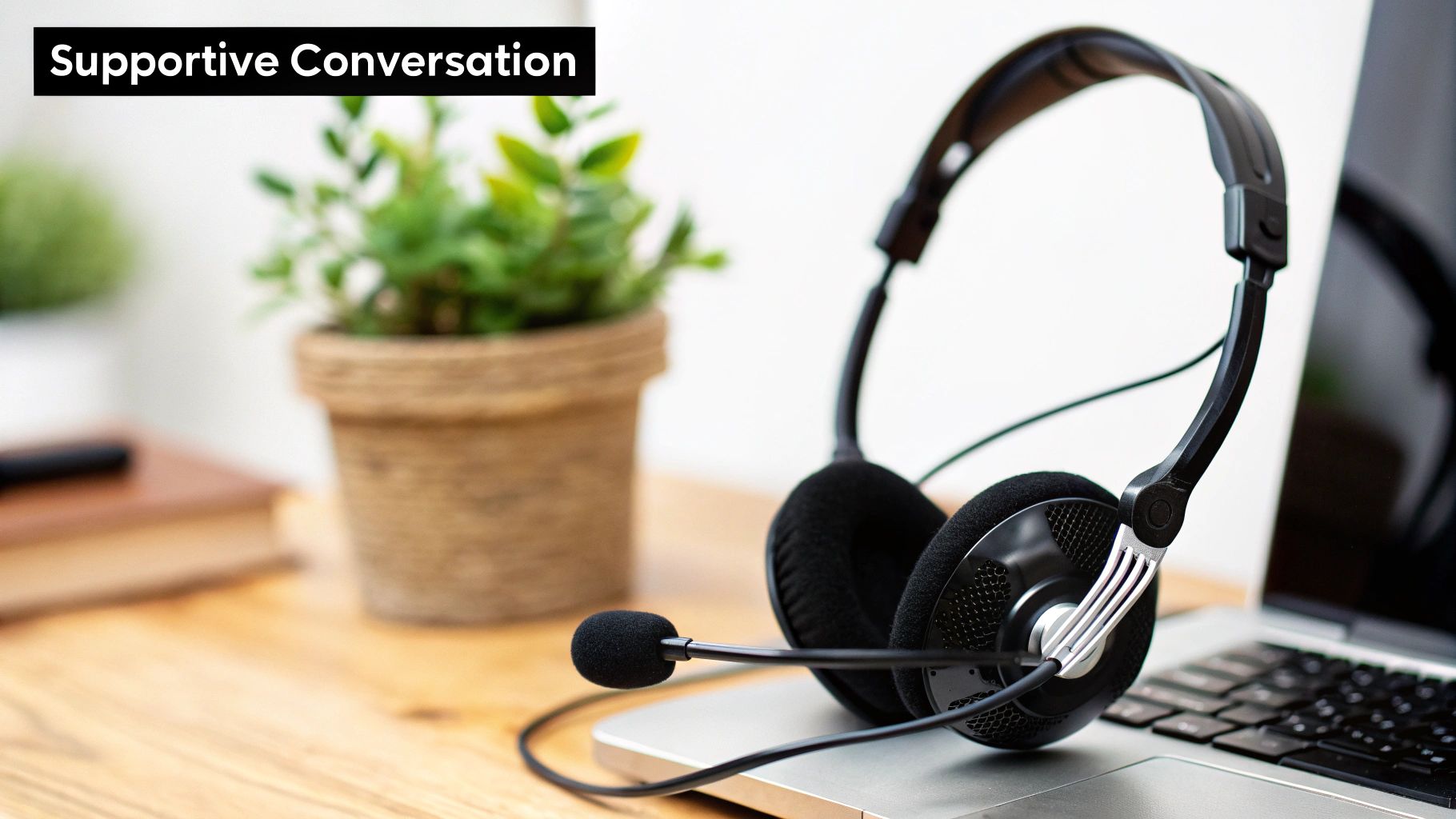
It’s completely understandable that fear of judgment or legal trouble can keep people from reaching out. When you decide to call an emergency substance abuse hotline, it’s crucial to know that your privacy isn’t just an afterthought—it’s a foundational principle. Knowing your rights can give you the confidence to speak openly and get the help you deserve.
Think of your conversation as being locked in a vault. The information you share is protected by strict confidentiality rules, and the specialist you speak with is ethically and often legally bound to keep it private.
Anonymity and Confidentiality Explained
You’ll hear these two words a lot, and while they sound similar, they serve different but related purposes. Both are in place to create a safe space for you to talk.
- Anonymity means you are in control. You don’t have to provide your name or any other details that could identify you. You can choose to remain completely unknown.
- Confidentiality is the promise that even if you do decide to share personal information, the person on the other end of the line will not share it with anyone else.
This commitment to privacy is the bedrock of any trustworthy hotline. We take this seriously, and you can learn more about how your information is protected by reviewing our full privacy policy. The bottom line is, you decide what you feel comfortable sharing.
The Rare Exceptions to Privacy
Trust is built on honesty, so it’s important to be clear about this. While your call is confidential 99% of the time, there are a few very specific and rare exceptions. These exist for one reason only: to protect someone from immediate danger.
“A specialist may be required to break confidentiality only if there is an immediate and credible threat of serious harm to yourself or someone else, or in cases of reported child abuse.”
Let me be clear: these situations are incredibly rare. The absolute priority is to provide a secure, non-judgmental space where you can focus on getting the support you need, right here and now, without fear.
Finding the Right Hotline for Your Needs
When you’re in crisis, you don’t just need help—you need the right kind of help. Just like you wouldn’t go to a foot doctor for a heart problem, finding an emergency substance abuse hotline that understands your specific situation can make all the difference.
Think of it this way: some hotlines are like a Swiss Army knife—versatile and great for almost any situation. Others are more like a surgeon’s scalpel, designed for a very specific purpose. Both are incredibly valuable, but one might be a much better fit for what you’re facing right now.
Comparing Hotline Types
National hotlines are often the first stop for many, and for good reason. They are incredible resources with a massive reach. Then you have specialized hotlines, which offer a more focused kind of support.
- National Hotlines: These are fantastic for general advice, crisis support, and getting connected to treatment options in your area. If you’re not sure where to start, a national line like SAMHSA’s National Helpline is a solid, reliable choice.
- Specialized Hotlines: These services are built to serve specific communities, like veterans, LGBTQ+ individuals, or teenagers. The people on the other end often have direct experience or specialized training to understand the unique pressures and challenges those groups face.
The reality is, more people than ever need this kind of support. The UNODC World Drug Report revealed that around 316 million people used drugs in a recent year, a staggering increase of over 20% in the last decade. You can discover more about these global trends on Dianova.org. These numbers aren’t just statistics; they represent millions of lives in need of a lifeline.
“The best hotline for you is the one you feel most comfortable calling. Trust your instincts and reach out to the resource that feels like the right fit for your situation.”
At the end of the day, the goal is to talk to someone who genuinely gets it. Whether that’s a broad national service or a specialized one, the most important thing you can do is make the call. If you’re feeling lost about where to even begin, our guide on how to get addiction help can give you a clear, step-by-step plan.
Taking Actionable Steps After the Call
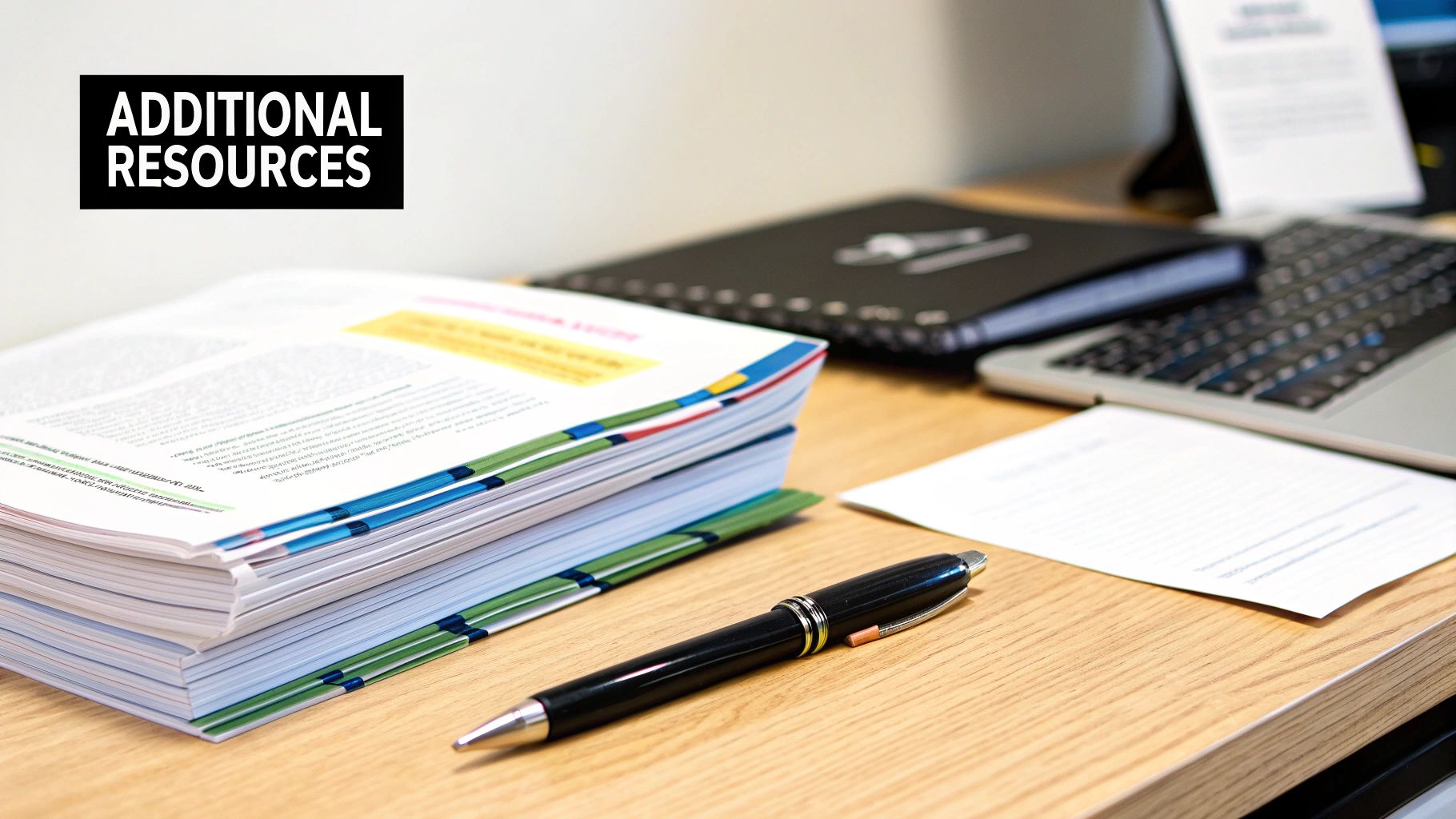
Making that call to an emergency substance abuse hotline is a huge first step. It’s the moment you break through the isolation and finally get a breath of fresh air. But what comes next? The real work—and the real hope—begins after you hang up the phone.
Think of the hotline call like getting a personalized map from an expert guide. You were lost, and now you have a clear direction and the tools to find your way out. The next part of the journey is about taking those first few steps, using the guidance you just received.
The hotline specialist likely gave you a few concrete suggestions based on your specific situation. The key is to act on them while you still have that momentum and clarity.
Building Your Recovery Roadmap
This is where you start turning advice into a real, tangible plan. The recommendations from the hotline are your building blocks for a more stable, healthier future. You’re essentially creating a safety net for yourself.
Here are some common next steps a specialist might recommend:
- Contacting a Local Treatment Center: They may have given you the names of specific detox facilities, inpatient rehabs, or outpatient programs in your area. Your very next move should be calling one of them to schedule an assessment.
- Finding a Support Group: Peer support from groups like Alcoholics Anonymous (AA) or Narcotics Anonymous (NA) is invaluable. Hearing from others who get it can make you feel less alone and connect you with a community that’s committed to recovery.
- Creating a Safety Plan: This is your personal playbook for tough moments. It means writing down your triggers, healthy coping skills to use instead, and a list of people you can call when you feel vulnerable.
“The hours and days right after that first call are critical. Taking even one small, deliberate action can make all the difference, setting you on a path to recovery instead of letting you slide back into crisis.”
This proactive mindset is what builds the foundation for long-term success. Recovery is an ongoing process, not a one-time event. Taking some time to learn about aftercare and relapse prevention will give you a much better grasp on how to protect your sobriety long after treatment ends. By combining professional guidance with the power of peer support and your own personal safety plan, you create a powerful defense for the healthier life you deserve.
Call Now – Your Journey to Recovery Begins Today!

Take the first step towards a healthier life! Call now to connect with our compassionate team and start your recovery journey today. Your path to healing awaits!
Our recovery specialists are available 24/7 to provide support, and all calls are confidential and free. Reach out anytime – we’re here to help!
Answering Your Questions About Substance Abuse Hotlines
Making the decision to call a substance abuse hotline is a huge step. It’s completely normal to feel a little hesitant or to have a lot of questions running through your mind. Getting those questions answered can often be the final push needed to pick up the phone with confidence when help is needed most.
Let’s walk through some of the most common concerns people have before making that important call.
Is It Free to Call a Hotline?
Yes, absolutely. Any legitimate national or non-profit hotline is completely free to call and available 24/7. Their entire purpose is to provide support to anyone who needs it, regardless of their ability to pay. You will never see a bill for the call or for the expert guidance you receive.
Think of it this way: their mission is to remove barriers to getting help, not create new ones. The last thing you should be worried about in a crisis is money.
Will They Force Me Into Treatment?
No, you will never be forced to do anything you don’t want to do. The person you speak with is there to be your guide, not to make decisions for you. Their role is to listen to your situation, help make sure you’re safe, and then lay out your options and resources.
“The choice to enter treatment, find a support group, or take any other step is always 100% yours. A hotline gives you the information and power to choose, but you are always in the driver’s seat of your own recovery.”
They might strongly suggest certain actions based on what you tell them, like heading to an emergency room if you’re in medical danger, but the power to follow that advice is completely in your hands.
Can I Call for Someone Else?
Yes, and you absolutely should. These hotlines are a critical tool not just for the person using substances, but for the friends, family, and partners who are right there in the thick of it with them. Addiction rarely affects just one person.
When you call on behalf of a loved one, a specialist can help you with:
- Guidance on what to do: They can help you figure out how serious the immediate danger is and walk you through how to respond in a way that is both safe and supportive.
- Resources for your loved one: You’ll get information on different treatment options that you can share with your loved one when the moment feels right.
- Support for yourself: It’s emotionally and mentally exhausting to care for someone struggling with addiction. The specialist can point you toward resources for your own well-being, like family support groups.
Do I Need to Be in a Crisis?
You should still call. While these hotlines are absolutely equipped to handle life-and-death situations, their role is much bigger than just crisis intervention. You don’t have to wait until things hit “rock bottom” to reach out for help.
It’s best to think of it as a starting point. If you’re just feeling lost, have questions about addiction, or have no idea where to even begin looking for help, an emergency substance abuse hotline is a perfect first call. The specialist can connect you with all sorts of non-emergency resources, from local counselors to support group meetings and tools for finding long-term care.
At Addiction Helpline America, we know that taking the first step is often the hardest part. Our compassionate professionals are here to connect you with trusted recovery resources and provide the guidance you need. If you or a loved one is struggling, let us help you find the path to a healthier future. Learn more and get help now at Addiction Helpline America.
Our helpline is 100%
free & confidential
If you or someone you care about is struggling with drug or alcohol addiction, we can help you explore your recovery options. Don’t face this challenge alone—seek support from us.
Programs
Resources
Will my insurance
cover addiction
treatment?
We're ready to help
Find the best
drug or alcohol treatment
center
Are you or a loved one struggling with addiction? Call today to speak to a treatment expert.















